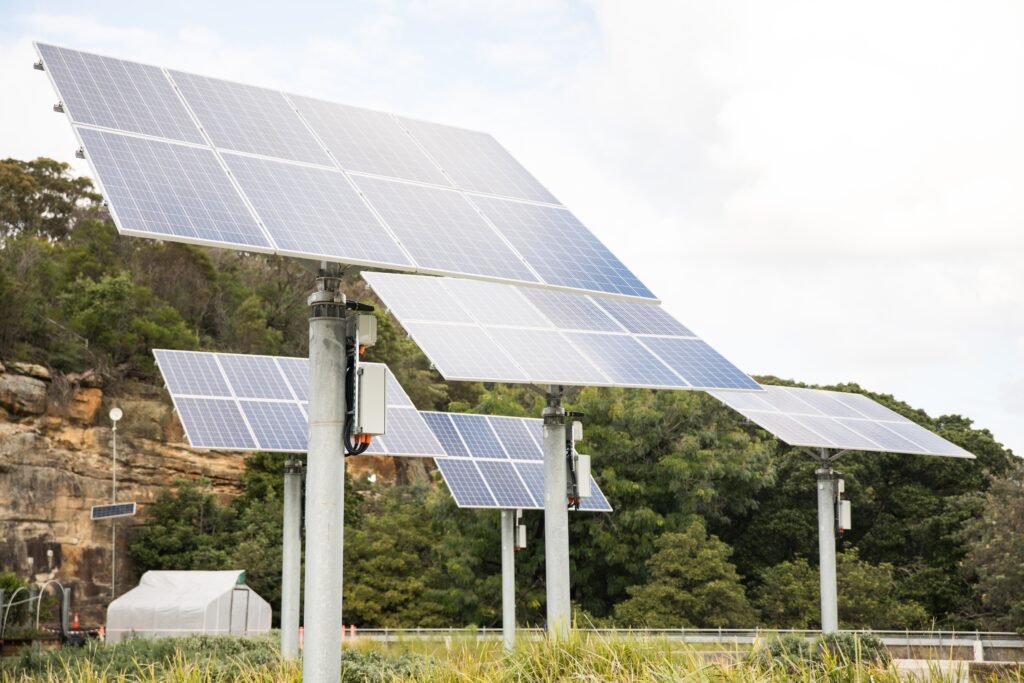
Introduction: The Rising Cost of Operations in Kenya
For businesses in Kenya, the challenge of balancing operational costs with growth ambitions has never been more pressing.
Electricity expenses continue to climb, driven by fluctuating fuel prices, taxes, and reliance on an overstretched national grid. At the same time, power reliability issues—blackouts, surges, and rationing—disrupt day-to-day operations, affecting productivity and profitability.
It’s no surprise that many forward-thinking companies are seeking alternatives. And increasingly, the solution is clear: solar energy.
Overcoming Common Concerns
From SMEs in Nairobi’s industrial areas to large corporations in Mombasa and Kisumu, businesses are adopting commercial solar panels to reduce costs, enhance reliability, and signal their commitment to sustainability.
Why Solar Makes Sense for Kenyan Businesses
1. Reliable and Predictable Energy Costs
Unlike grid electricity, where unit costs fluctuate depending on fuel imports and taxes, solar power provides stability. Once a business installs a solar system, the energy harvested from the sun is free. Over time, this translates into significant savings and predictable operating expenses—vital for companies managing tight budgets.
For SMEs, which often struggle with thin margins, a solar system can cut monthly electricity bills by 30–70%, depending on usage patterns. Large corporations and institutions with energy-intensive operations stand to save even more.
2. Fast and Tangible Return on Investment (ROI)
Installing commercial solar panels in Nairobi or other regions may seem like a high upfront expense, but the ROI is compelling. Most systems pay for themselves in 3–5 years, after which businesses enjoy nearly free power for another 15–20 years. When compared to continually rising grid costs, the financial logic is difficult to ignore.
Moreover, solar systems can be designed to complement existing grid connections or backup generators, reducing diesel consumption and further lowering operational expenses.
3. Corporate Social Responsibility and Brand Image
Today’s consumers, investors, and regulators are increasingly conscious of sustainability. Businesses that align with renewable energy corporate Kenya initiatives not only reduce their carbon footprint but also enhance their reputation.
By adopting solar, companies demonstrate leadership in corporate social responsibility (CSR). Whether it’s reducing emissions, supporting the national renewable energy agenda, or aligning with global ESG (Environmental, Social, Governance) goals, solar positions businesses as forward-looking and responsible.
Beyond Savings: Tax Benefits and Green Financing Options
The Kenyan government has recognized the importance of renewable energy adoption and, through various policies, has provided incentives to make solar more accessible for businesses.
Tax Incentives
Import duty exemptions on solar equipment.
Zero VAT on specific renewable energy components.
Accelerated depreciation allowances on solar systems, allowing companies to write off the investment quickly against taxable income.
These measures mean that businesses don’t just save on electricity—they also benefit at tax time.
Green Financing
Banks and development institutions in Kenya are increasingly offering green financing solutions. These include favorable loan terms, lease-to-own models, and Power Purchase Agreements (PPAs), where a business can pay for solar electricity consumed without owning the system outright.
Such financing options remove the barrier of high upfront costs, enabling even SMEs to access modern solar solutions.
Real-World Impact: How Solar is Powering Kenyan Businesses
Consider the example of a manufacturing SME in Nairobi’s Industrial Area. Faced with rising KPLC bills and frequent blackouts, the company installed a 50kW solar system. Within the first year, electricity bills dropped by over 40%, while downtime due to outages was virtually eliminated thanks to an integrated battery backup.
In another case, a hospitality business in the Rift Valley switched to solar water heating and lighting. This move not only slashed operating costs but also boosted the hotel’s eco-friendly branding, attracting environmentally conscious tourists and investors.
These stories reflect a wider trend: across Kenya, businesses large and small are leveraging solar to gain a competitive edge.
Environmental and Social Benefits
Kenya is already a leader in renewable energy, with geothermal, hydro, and wind contributing significantly to the national grid. However, businesses adopting solar add a vital layer of resilience and sustainability.
Reduced Carbon Footprint: Each kWh of solar electricity reduces reliance on fossil fuels, cutting greenhouse gas emissions.
Energy Independence: Solar empowers businesses to control their own energy destiny, lessening vulnerability to grid instability.
Community Impact: Many companies reinvest the savings into job creation, local development, or community CSR programs.
By adopting solar, Kenyan businesses aren’t just cutting costs—they’re contributing to the national and global fight against climate change.
Upfront Costs
As highlighted earlier, financing models make solar accessible without massive capital expenditure. Businesses can start saving from day one under lease or PPA agreements.
Reliability of Technology
Modern solar systems are durable, with panels lasting 25+ years and inverters 10–15 years. Reputable providers also offer warranties and ongoing maintenance to ensure consistent performance.
Space Requirements
Even businesses with limited roof space can benefit. Panels can be installed on rooftops, carports, or even ground-mounted depending on available space.
The Future of Solar for Business in Kenya
The trajectory is clear: solar adoption among businesses will continue to accelerate. With costs of solar technology steadily declining and Kenya’s abundant sunshine, the economics become more compelling each year.
In the next decade, it is expected that more SMEs, corporates, and institutions will integrate solar not just for cost-cutting, but as part of broader sustainability and ESG commitments. For companies looking to remain competitive, solar energy is no longer optional—it’s strategic.
Subtle Call-to-Action
Companies across Nairobi are already experiencing the benefits of solar by partnering with trusted providers. Plasma Solar Africa has been at the forefront of helping businesses secure affordable, reliable, and sustainable power.
Whether you are an SME looking to stabilize monthly expenses, or a large corporate institution aiming to enhance sustainability, now is the time to explore solar solutions tailored to your needs.
Conclusion
The rising cost of operations and power reliability challenges in Kenya make solar energy a smart, future-proof investment for businesses. By embracing solar, companies cut costs, strengthen their resilience, and enhance their sustainability credentials.
From SMEs to large corporations, the transition is well underway. With supportive government incentives and innovative financing, the barriers are lower than ever. For Kenyan businesses, solar energy is not just about going green—it’s about thriving in a competitive marketplace.
